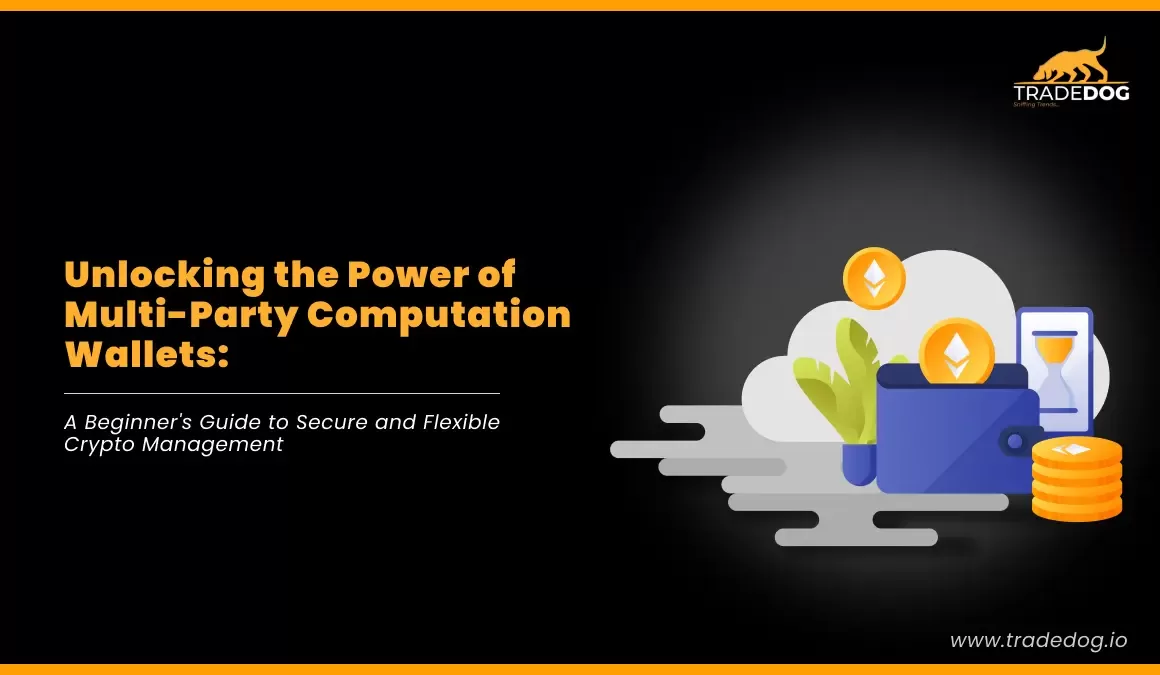Quick Links
Multi-Party Computation (MPC) is an advanced cryptographic approach that allows for the secure and private calculation of sensitive data without revealing it to anyone. MPC technology has been applied to the world of blockchain and cryptocurrencies in recent years, culminating in the development of MPC wallets. In this blog post, we will look at MPC wallets and the benefits they offer.
What is an MPC Wallet?
An MPC wallet is a cryptocurrency wallet that protects the private keys used to sign transactions with MPC technology. Unlike regular cryptocurrency wallets, it uses several parties to sign transactions without giving the private key to anyone. This ensures that even if one of the participants is hacked, the private key remains secure.
How does MPC wallet work?
To use an MPC wallet, you typically set up an account and create a wallet address. The wallet provider will then generate multiple key fragments and distribute them among the parties you specify (which can include yourself). When you want to send or receive cryptocurrency, you initiate the transaction through the wallet interface, and the necessary key fragments are securely combined to sign the transaction. The resulting signature is then broadcast to the network for confirmation and processing.
Benefits of MPC Wallets:
Improved Security
MPC wallets offer improved security compared to traditional cryptocurrency wallets. With an MPC wallet, the private key is never revealed to anyone, and the signing parties do not need to trust each other. This reduces the risk of a single point of failure and makes it much more difficult for attackers to steal funds.
Increased Privacy
MPC wallets also offer increased privacy compared to traditional cryptocurrency wallets. Since the private key is never revealed to anyone, there is no risk of it being leaked or stolen. This means that users can maintain a high level of privacy and anonymity, while still being able to transact with their cryptocurrency.
User Control
With an MPC wallet, users have complete control over their private keys, which is not the case with some other types of cryptocurrency wallets. This means that users can choose to keep their private key offline, and only use it when needed, which further increases the security of their funds.
Ease of Use
MPC wallets are easy to use and require no special technical knowledge. Users simply need to download the wallet and follow the setup instructions. Once set up, the wallet can be used to securely and privately transact with cryptocurrency.
Drawbacks of MPC Wallet
While MPC wallets offer several benefits over traditional single-key wallets, there are some potential drawbacks to consider:
Complexity
The technology behind MPC wallets can be complex and difficult for the average user to understand. This can make it more challenging to set up and use an MPC wallet, which could limit its adoption.
Dependency on the provider
MPC wallets rely on the wallet provider to distribute the key fragments and handle the cryptographic computations needed to sign transactions. This means that users must trust the provider to act honestly and securely, which could be a concern if the provider is hacked or compromised.
Potential for collusion
While MPC wallets distribute the key fragments among multiple parties to reduce the risk of a single point of failure, there is still a risk that these parties could collude to steal the funds. This is particularly true if the parties are not known to each other or do not have a strong incentive to act honestly.
Which web3 wallets use MPC?
MPC Technology has lots of advantages, which leads to organizations offering web3 wallets adopting this technology including ZenGo, Fireblocks, and Coinbase.
- ZenGo – It is the first consumer-facing MPC wallet, launched in 2019. ZenGo now has 700,000+ global consumers, multichain support, and 24/7 live in-app customer service. ZenGo announced web3-native application support in early 2022, bringing MPC security to everyday users and leveraging advanced web3 firewall technology to increase safe transaction approvals.
- Fireblocks – Fireblocks is a digital asset custodian for institutions that provides an MPC wallet with compatibility for over 30 blockchain technologies and 1,100 coins. Fireblocks’ institutional MPC wallet optimizes security and service level agreements (SLAs) while decreasing transaction costs by combining MPC technology with hardware isolation.
- Coinbase – The MPC wallet of the public crypto exchange allows a large and rising number of users to access the web3 ecosystem in a safe, dependable, and secure manner. Coinbase’s in-house MPC system supports both the ECDSA and EdDSA protocols. Because there is no overhead, the wallet can perform cryptographic signatures for nearly any blockchain, and users do not have to pay for gas transactions.
Which MPC wallet is the best?
There is no such thing as a single best MPC wallet for all users. ZenGo is a great option for individuals and small teams whereas if you are an institutional investor, you have many options like Fireblocks. These areas must be considered before choosing an MPC wallet, according to the requirements as it is a foundational piece of infrastructure for institutional custodians, investors, and traders:
- dApp connectivity
- User experience
- Native features
- Customer support
- User Interface design
- Wallet Security
What is the difference between MPC Wallet and Multi-sig Wallets?
One thing that MPC wallet and Multi-sig wallet have in common is that more than one person is involved in verifying and executing the transaction, but the key difference here is that multi-sig uses distinct signatures generated by distinct private keys to secure the wallet. Whereas MPC only creates a single signature regardless of the number of private key shards that participated.
MPC wallets are primarily based on proprietary software solutions and rely heavily on third-party support for maintenance and operations, which is not the case with Multi-sig wallet, which is heavily based on open-source privacy-focused software.
Drawback of Multi-sig wallet over MPC wallet
Lower gas prices are one of the advantages of using an MPC wallet. Gas fees are calculated by the amount of on-chain operations done to execute a transaction. MPC-based wallets are cost-effective since they will never have costs that are greater than a standard blockchain transaction, regardless of the total number of signers engaged in the process. The increased complexity of having numerous users utilizing multi-sig wallets, on the other hand, makes them considerably more computationally intensive, eventually raising the fees/transaction cost.
Conclusion
MPC wallets are an exciting development in the world of cryptocurrency, offering improved security and privacy compared to traditional wallets. By using advanced cryptographic techniques, MPC wallets enable users to maintain control over their private keys, while also benefiting from increased security and privacy. If you’re looking for a more secure and private way to transact with cryptocurrency, an MPC wallet may be the perfect solution for you.









